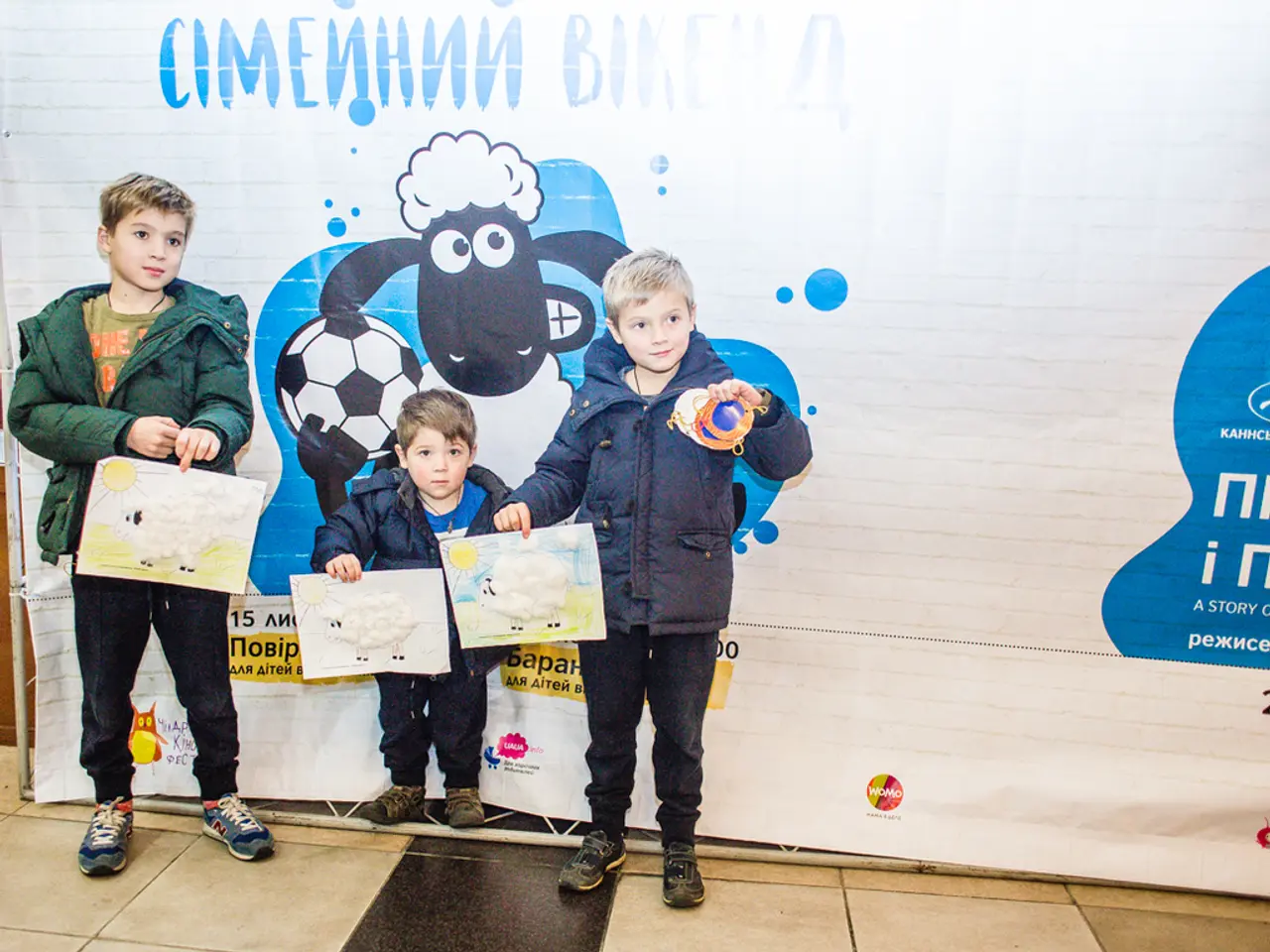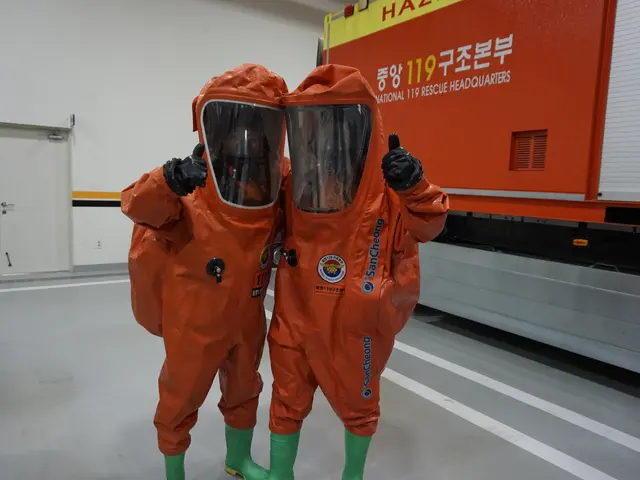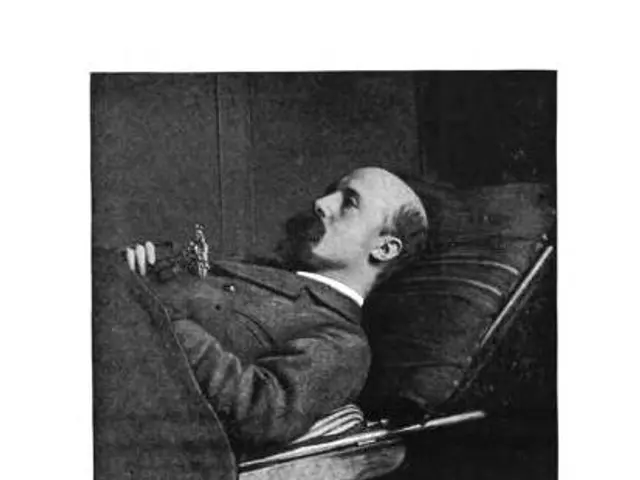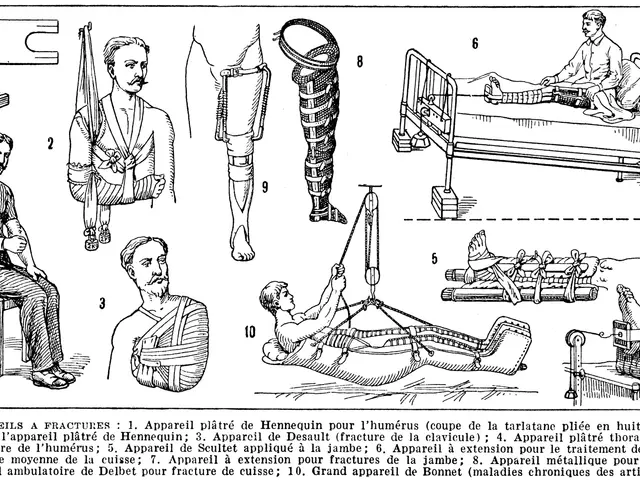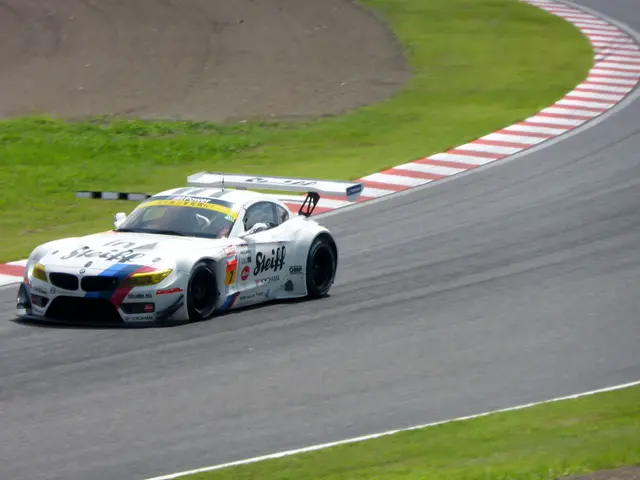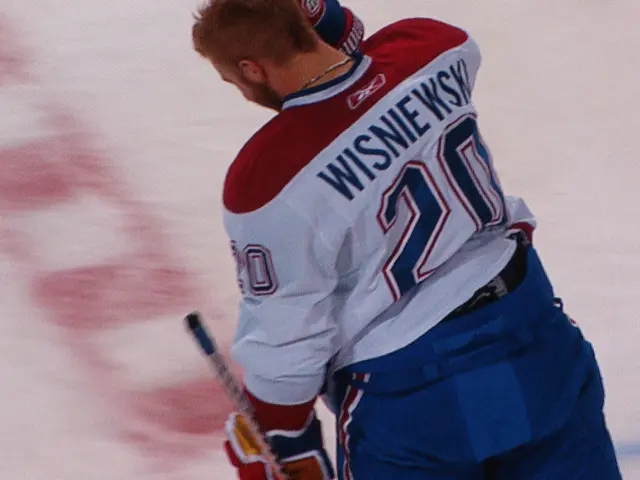"Funding crisis in cancer research leaves affected families in disarray"
In a heartbreaking turn of events, the Lesko family, who have been battling five-year-old Juliette's incurable form of brain cancer, ependymoma, for two years, have faced a setback. The clinical trial in Texas that offered a different approach for treating ependymoma, which Juliette was hoping to enroll in, has abruptly stopped accepting patients.
Juliette has undergone two brain surgeries, 30 sessions of radiation, and two relapses. She is currently being treated with an experimental drug, though it is unclear whether it is working. Juliette is scheduled for another brain scan later this month to determine the effectiveness of the treatment.
This unfortunate news is part of a larger crisis in pediatric cancer research. The National Cancer Institute (NCI) announced it would no longer fund the Pediatric Brain Tumor Consortium (PBTC), a national network of top doctors, scientists, and hospitals that provides children access to experimental treatments through clinical trials. As a result, six PBTC clinical trials have stopped enrolling new patients, including the Texas-based ependymoma immunotherapy the Leskos were interested in.
The decision to shut down the PBTC has been met with strong opposition. The National Brain Tumor Society plans to submit a petition to the NCI this month asking that the decision be reconsidered. A July letter signed by over 1,000 families and advocates for DIPG research decried the decision not to fund the research.
The belt-tightening at the NCI has led to chaos, resulting in layoffs, frustration over cuts, and an exodus of clinicians and scientists. The losses have left a vacuum at the NIH hospital where adults and children with cancer are treated at no cost, and data shows the number of patients there have plummeted during the Trump administration.
Moreover, the Trump administration has suspended research grants that contain diversity, equity, and inclusion components, affecting some pediatric cancer grants. For instance, a grant at the University of Southern California that focused on understanding why "children of Latino ethnicity" have the highest risks of acute lymphoblastic leukemia was also suspended.
The administration is also clamping down on grants going to international researchers who are working in partnership with US scientists, affecting research on rare diseases. A Northwestern University grant investigating why a specific group of chemotherapy drugs causes heart failure in some patients, requiring a heart transplant, has been suspended.
However, there is a glimmer of hope. The experimental drug being used to treat Juliette Lesko is showing effectiveness in shrinking a particularly aggressive and always fatal brain cancer, diffuse intrinsic pontine glioma, known as DIPG, in mice.
In the face of these challenges, the resilience of families like the Leskos, and the dedication of researchers and advocates, remains unwavering. The fight for better treatments and a cure for pediatric cancer continues.
Read also:
- Born Josephine Steadman in Dawson, NM on November 7, 1944, she...
- Suspect resists granted freedom following allegations of peddling counterfeit medicines
- Eighty years later, a Hibakusha shares their account in English, advocating for dialogue for peace
- Remains of a Family Found Butchered and Consumed in a Spanish Cave, Evidence Suggesting This Occurred 5,700 Years Past
